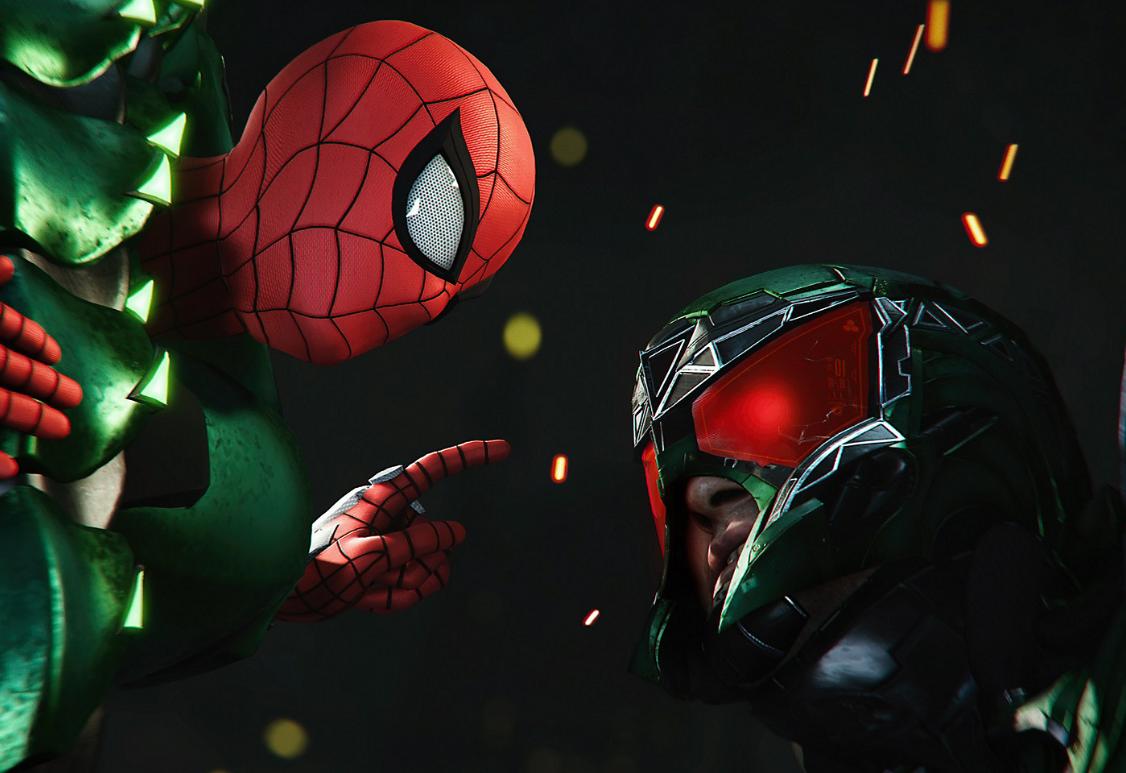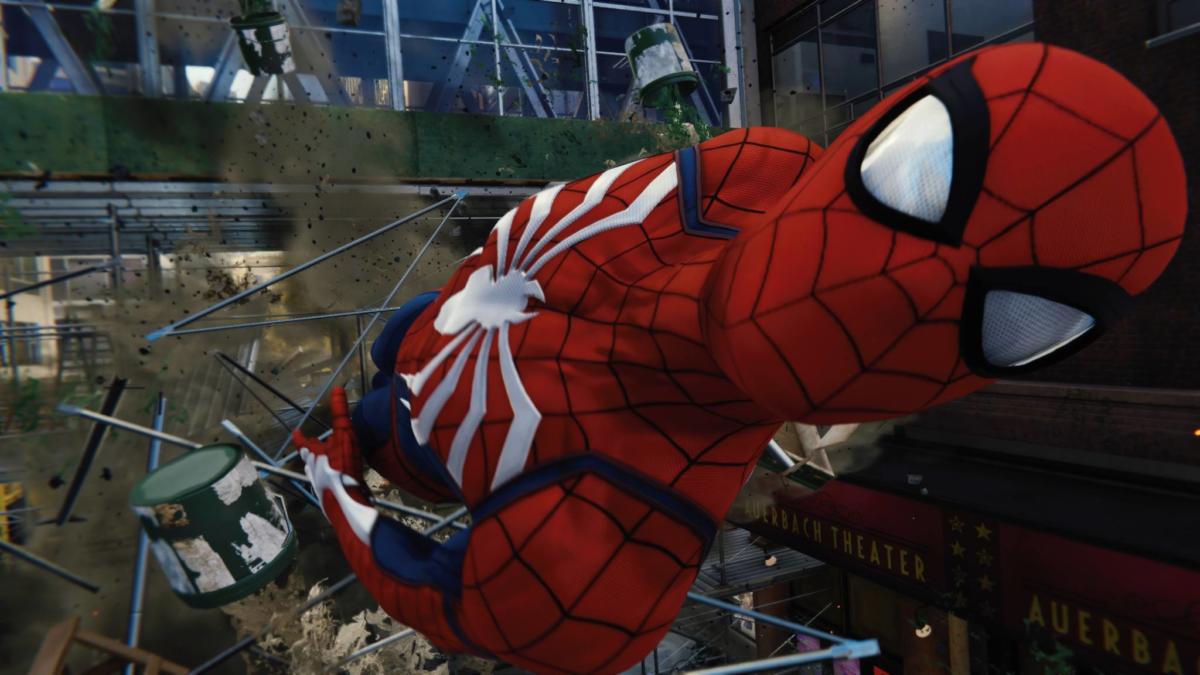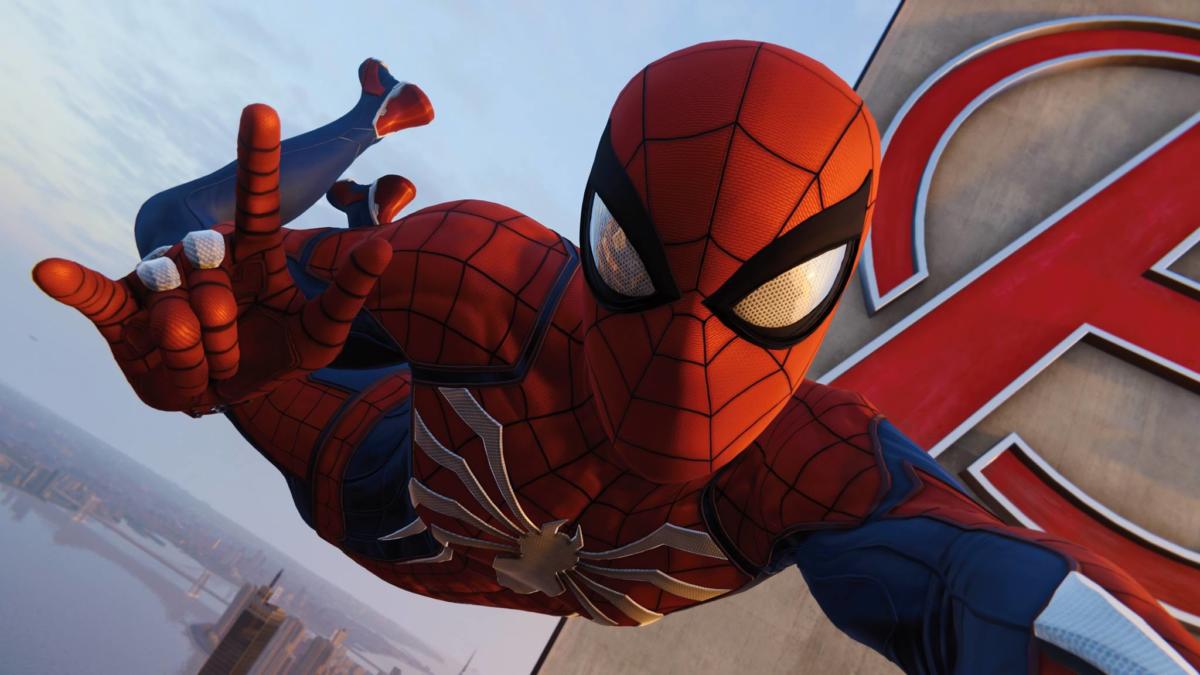Marvel’s Spider-Man, the recently released PS4 exclusive, totally engulfed me over this past weekend. A sickness made the lapse in doing the adulting an easy decision, leaving me prone on the couch with a DualShock in had. Even if my soul wasn’t on the verge of leaving my body, I may still have played Spider-Man until I couldn’t feel my fingers.
It’s the first game in, well, ever that I have earned a “true” Platinum for, not one tied to a Telltale experience or a game about picture puzzles. A lot of that is down to how technically proficient it is from top to bottom and also that it just feels damn fulfilling to play, but it might also be because of how much it reminded me of my youth.
Spider-Man 2 is touted as being one of the best licensed games ever made, as well as arguably Spidey’s best outing (though the newest game might have something to say about that). Boasting web-swinging that felt as true to the real thing without failing and breaking your neck immediately and a vast, living open world, Spider-Man 2 is the stuff of legend and a game that I spent hours in just collecting balloons for that damn girl.
When you strip back Marvel’s Spider-Man to its core, it’s very much the same game. Sure, its systems are more complex and the well of content far deeper (not to mention it looking considerably better), but by and large, Spider-Man 2 and Marvel’s Spider-Man share the same DNA. The newest Spider-Man game feels like a throwback to its most beloved predecessor and also to game design of old.
Compared to so many open worlds which offer expanses of complete nothingness, Spider-Man’s Manhattan is vibrant and alive, so much so that it’s being in different worlds whether you’re high in the sky or down on the concrete. When web-swinging, the music swells and seems to suit every single one of your actions as planes fly over your head. On the ground, citizens chatter away, hail taxis, and even give you a high five or ask for a selfie.
It’s refreshing to see such care afforded to the little details; Spider-Man couldn’t feel further away from the homogenised annual (or close to) releases in some of gaming’s biggest open world franchises. It’s tailormade down to its tiniest and most insignificant of things, which shows that sometimes a bit of patience can go a long way. It never needed one, but if Insomniac asked for a delay to improve the game, there’s no doubt that Sony would have allowed them to, just like they did with God of War and Days Gone. The first-party games on PS4 have always felt more than just obligations on the production line.
It’s no secret that Marvel’s Spider-Man is filled with busywork checklists — you have to collect a lot of things if you want that Platinum. Where it differs from its peers, however, is that you actually want to tick things off just because they’re all well-made and curated with love. The research stations offer some of the most varied mechanics in the entire game and collecting backpacks opens up the lore of the already established world.
A sentence that I don’t believe I would type even just three years ago: it’s almost a godsend how much content is within the game and how much you unlock through nothing more than sheer play. The grind to acquire suits is very real, but Spider-Man does a fantastic job of doling them out incrementally with you (essentially) levelling up each time you complete a story mission. Likewise, the inclusion of gadgets and skills means you’re always unlocking a new plaything, keeping the experience constantly fresh.
It’s a shame that the progress earned purely through gameplay in Spider-Man feels like such an anomaly in the wider industry, however. So many games now offer the fast track option of you paying extra money to get a leg up in-game. This would be fine — if not, at least excusable — because some people have jobs and lives in general, but not when the game is balanced in such a joyless and grindy way that makes opening your wallet that much more incentivising.
While it shouldn’t really be hailed as an exception (because there shouldn’t need to be an exception begin with), Marvel’s Spider-Man joins the pantheon of games like God of War and The Witcher 3 as single-player experiences that prove the industry’s most nefarious publishers utterly wrong. If you build a game as a game and not just a moneymaking exercise, the people will come.
Now, if you’ll excuse me, I have to go swing around Manhattan in my underwear and take selfies with birds with J. Jonah Jameson faces.
Some of the coverage you find on Cultured Vultures contains affiliate links, which provide us with small commissions based on purchases made from visiting our site.



